- Practice Test
- Useful Tips – Tricks
- Full Writing Review
- General Writing Task
- Writing Task 1
- Writing Task 2
- Writing Exercises
- Writing Sample – Topics
- Writing Vocabulary
- Speaking Vocabulary
- Intro Question
- Speaking Part 1
- Speaking Part 2
- Speaking Part 2 – Audio
- Speaking Part 3
- IELTS Books
- Recent Exams
- IELTS Vocabulary
- Essay from Examiners
- IELTS Ideas

IELTS Speaking Part 3: Travel and transport
Topic: travel and transport.
1. How easy is it to travel around your country? 2. Which method of travel do you consider the safest? Why? 3. Has travel become safer in recent years than that was in the past? 4. What are the pros and cons of low-cost air travel? 5. How do you think people will travel in the future? 6. Should the government in a country focus more on rail transports or road transports? Why?
Sample Answer:
Q. 1: How easy is it to travel around your country? Answer: We have a good number of public transportations including bullet trains, modern buses and aeroplanes and I would say someone can travel in my country very easily. Major cities in my country have airports and it makes commuters’ life hassle-free. Since we have eight-lane highways and they are maintained periodically, someone can drive his/her own car to commute from one area to another smoothly. Besides, metro rails are convenient for city-dwellers to commute to and from their offices and citizens can take long-route trains to visit other districts and they are comparatively cheaper.
Q. 2: Which method of travel do you consider the safest? Why? Answer: Despite some common misconceptions, I believe airways are the safest means of transportation. We have frequent national and international flights and the service is really excellent. Aviation accidents are deadly and claim the lives of many, and such accidents often make headlines which gives an impression that air travel is nocuous. However, if we compare air causalities with that of road accidents, we can easily learn that air travel is the safest. Flying is the most secure way to get around in my country as flights are well-organised and the air traffic is controlled more efficiently by trained professionals.
Q. 3: Has travel become safer in recent years than that was in the past? Answer: Some people would say that accidents and casualties are higher in modern time than in the past. But I believe that travelling in recent years has significantly improved and offers more convenience to commuters. We see more accidents these days because they all are being reported in the news unlike the past when we could hear about only major accidents. In recent days, we have more strict traffic rules, acute safety measures including biometric checking, and modern transportations which are built considering safety in mind. Rigid airport rules make terrorist attacks almost impossible. A typical train station in my country has more than 15 train schedules and they carry thousands of passengers each day. Such a station used to have only three to four trains a day. If we consider the number of vehicles and commuters with that of the past, we would get a real picture of road safety, which I believe has advanced in recent days.
Q. 4: What are the pros and cons of low-cost air travel? Answer: The major benefit of cheap air travel is that many people can afford to visit more places around the world and thus foster the tourism industry. More frequent travels by ordinary people make them tolerable to other cultures and it maintains global peace. Among the demerits, increasing flights are responsible for air pollution. Cheap air travel attracts more passengers and thus they indirectly contribute to air pollution. Moreover, low-cost air tickets do not ensure desirable comfort and amenities which people often regret. Food and drinks in such a journey are unreasonably expensive and it often includes hidden fees and charges.
Q. 5: How do you think people will travel in the future? Answer: That’s an interesting question and I will be both realistic and imaginative to answer this. I believe people will prefer to take aeroplanes and speedy trains in the near future to travel to long-distance and flights will be cheaper to attract more passengers. Cars would be our constant companion and we would rely on our automobiles more than ever to travel within the city. After 30 or 40 years, our cars would be able to fly short-distance and even run on the river, much like a science-fiction vehicle. After 50 years or so, we will have flying cars that will take us to our offices and the software instead of human will drive those cars. After a century later, we will have personal pods of SkyTran carrier that would use the airways rather than moving on a road. After a few centuries later, who knows, we might even teleport straight to our destination from our home!
Q. 6: Should the government in a country focus more on rail transports or road transports? Why? Answer: I believe the decision should be made based on the geological condition, existing infrastructure, population and economic condition of the country. For instance, if a country has mostly hilly tracks and rivers, developing rail tracks is both challenging and expensive. For such countries, connecting highways and road transports are more practical and cost-effective. Moreover, if the country does not have enough rail tracks already, it should focus on developing and enhancing roads rather than rails. Finally, countries with higher population should consider developing their railroads as it can carry a great number of people at a time. Whether to invest in road or rail transportation, thus, should be made based on a number of factors rather than a single one.
LATEST POSTS
Ielts speaking part 3: topic teamwork, ielts speaking part 3: topic relax, ielts speaking part 3: bicycle.

IELTS App - For Mobile
Ready for the IELTS exam with our IELTS app. Over 2 million downloads

Popular Last 24h
Describe a person whom you met for the first time and made you happy, describe a prize you have won, [ebook] collins for ielts – reading, writing, listening, speaking and vocabulary, a street market in your city / a street market where you did shopping, list of top 100 synonyms in the ielts test, describe a dinner you enjoyed with your friends., essay:a bad workman always blames his tools.
- IELTS Test/Skills FAQs
- IELTS Scoring in Detail
- Forecast Speaking – 2023
- List IELTS Speaking Part 3
- List IELTS Speaking Part 1
- IELTS Writing 2023 – Actual Test
Our Telegram
Join our community for IELTS preparation and share and download materials.
The information on this site is for informational purposes only. IELTS is a registered trademark of the University of Cambridge ESOL, the British Council, and IDP Education Australia. This site and its owners are not affiliated, approved or endorsed by University of Cambridge ESOL, the British Council, or IDP Education Australia.
Latest Articles
Writing task 2: governments – environmental, writing task 2: topic education, writing task 1: average number of hours students, writing task 1: internet use for different purposes in australia, most popular, describe a film that made you laugh, topic: experience is the best teacher, describe something difficult you would like to succeed in doing, in many countries,today there are many highly qualified graduates without employment..
ieltspracticeonline All Rights Reserved
Welcome Guest!
- IELTS Listening
- IELTS Reading
- IELTS Writing
- IELTS Writing Task 1
- IELTS Writing Task 2
- IELTS Speaking
- IELTS Speaking Part 1
- IELTS Speaking Part 2
- IELTS Speaking Part 3
- IELTS Practice Tests
- IELTS Listening Practice Tests
- IELTS Reading Practice Tests
- IELTS Writing Practice Tests
- IELTS Speaking Practice Tests
- All Courses
- IELTS Online Classes
- OET Online Classes
- PTE Online Classes
- CELPIP Online Classes
- Free Live Classes
- Australia PR
- Germany Job Seeker Visa
- Austria Job Seeker Visa
- Sweden Job Seeker Visa
- Study Abroad
- Student Testimonials
- Our Trainers
- IELTS Webinar
- Immigration Webinar
Public Transportation: IELTS Speaking Part 1 Sample Answer
Updated On Apr 12, 2024

Share on Whatsapp
Share on Email
Share on Linkedin
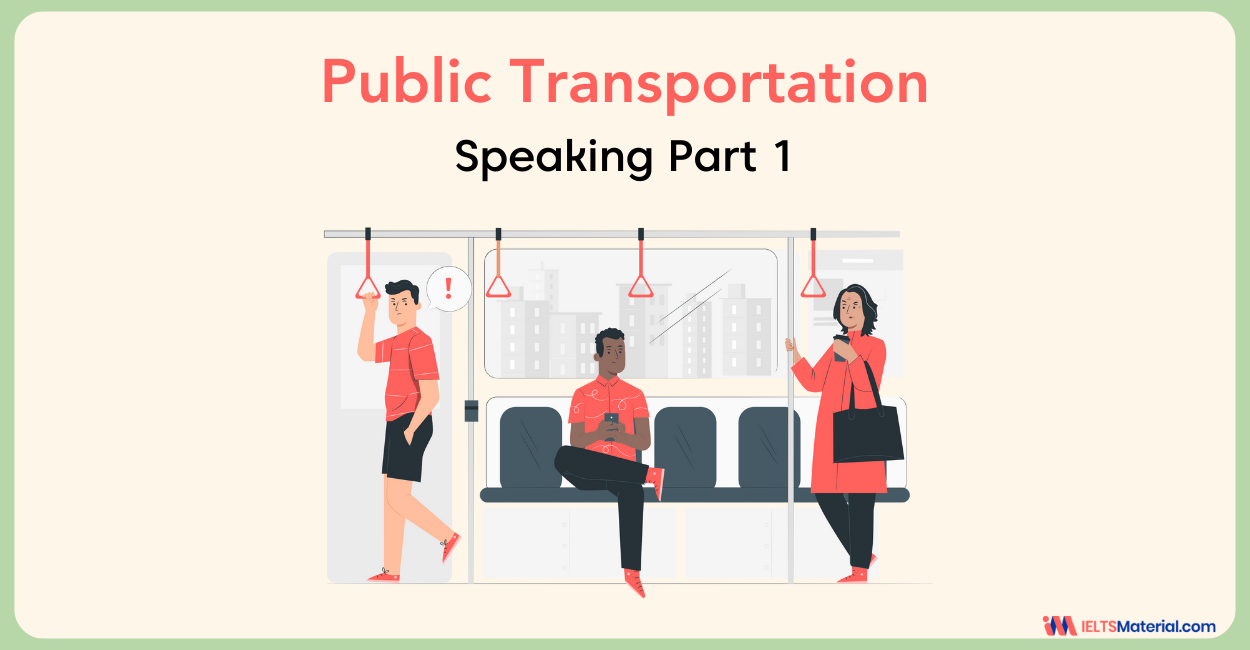
Get a Complimentary IELTS Speaking Strategies PDF
IELTS Speaking Part 1 consists of a short discussion between the examiner and the candidate. You will be asked a series of questions on common topics. You have to state your opinion or experiences.
Given below are ‘Public Transportation Speaking Part 1’ questions with sample answers on the subject.
Aiming for a high band score? Check out this video on how to improve your score with some common expressions.
Find more IELTS Speaking Vocabulary here!
Speaking Part 1
1. what form of transport do you prefer to use why.
Without any doubt, I would say motorbikes. You can see people driving motorbikes all over the place in my country. Almost everyone travels by motorbike. The reason why a motorbike is so popular is due to their reasonable price and convenience. They are also extremely varied in terms of size, color and quality, thus a wide variety of choices is available for everyone.
2. How often do you take buses?
Almost every day. Since my house is so far away from my university, it’s impossible for me to travel by motorbike. In addition, the air is heavily polluted by exhaust fumes and traffic jams always take place, especially during peak hours. Thus, I’d prefer to take the bus, to save time, save gasoline and cause less pollution.
3. Can you compare the advantages of planes and trains?
Planes and trains regularly depart and arrive on time. Plus, there are many convenient facilities catering particularly to certain groups of passengers. However, traveling by plane is clearly time-saving and enjoyable in terms of onboard services like meals or comfortable seats, while traveling by train offers you a chance to see the world outside, and admire the views from their seats. It’s totally a great experience for most train travelers.
4. How much time do you spend traveling on a normal day?
I have to commute from my home to my workplace on a daily basis. It normally takes me 30 minutes to travel back and forth.
5. Would you ride bikes to work in the future?
Definitely not. Riding a bike means you’re exposing yourself to unpredictable weather and to air pollution. What is worse, I’m afraid are the main streets or the highway which is too dangerous for cyclists, as cars, motorbikes and buses will travel at a very high speed. Thus I’d rather ride a motorbike or take the bus instead.
6. What will become the most popular means of transport in your country?
I think buses will take the lead. You can travel the distance without much worries about ticket price or rainy weather outside. Also, new buses now offer better services like comfortable seats for the elderly or good air conditioning systems.
7. Do you prefer public transport or private transport?
I think I’d prefer public transport. It’s much more inexpensive and because it can contain a large number of people, it helps ease the intensity of traffic jams during peak hours and reduce the greenhouse gas emissions caused by vehicles. Private transportation is more costly in terms of fees, taxes and gasoline.
Band 9 Vocabulary
- Intensity: Of extreme force, degree, or strength Eg: The hatred gained intensity
- Greenhouse gas emissions: The emission into the earth’s atmosphere of any of various gases, esp carbon dioxide, that contributes to the greenhouse effect. Eg: There has been a lot of greenhouse emissions in the past few decades
- Without any doubt/There is no doubt that: A phrase expressing certainty or agreement; yes Eg: “Yes you can accomplish the work without any doubt”
- A wide variety of: A number or range of things of the same general class that is distinct in character or quality. Eg: There are a wide variety of people in this world
- Exhaust fumes: Waste gasses or air expelled from an engine, turbine, or another machine in the course of its operation. Eg: There were a lot of exhaust fumes coming out from the chimney
- Traffic jam: A-line or lines of stationary or very slow-moving traffic, caused by roadworks, an accident, or heavy congestion. Eg: There was a traffic jam on the main road
- Peak hours/Rush hours: The busiest hours Eg: We need to reach home before the rush hours
- To take the lead: To start winning a race or competition Eg: He took the lead in his hand for the recent project
Grab Our 4.5+ Rated Speaking Ebook Now to Level Up!
IELTS Speaking Part 2 Cue Card – Public Transportation
In IELTS Speaking Part 2 , you will have a cue card or a task card with a topic like ‘Describe your hometown’ followed by 3-4 questions related to the topic.
To prepare for the type of answer you can give and the common vocabulary you should use to answer the prompt questions on Public Transportation IELTS Speaking, let’s have a look at the following sample answers.
Public Transportation – IELTS Cue Card Sample Answer 1
Certainly, one memorable experience I had while using public transportation occurred during a trip to London a couple of years ago. It was during the peak of summer, and I decided to explore the city’s famous landmarks using the iconic double-decker buses. I vividly remember it was a sunny afternoon, and I boarded one of those red buses near Westminster Abbey.
As I ascended to the upper deck, I found a vacant seat by the window offering a panoramic view of the bustling streets below. The bus meandered through the historic neighborhoods, passing by renowned sights such as Big Ben and the Tower Bridge. What made this experience truly memorable was the live commentary provided by the enthusiastic tour guide on board. Their informative narration added a layer of depth to the sights, enriching my understanding of London’s rich history and culture.
Moreover, the atmosphere on the bus was lively and vibrant, with tourists from various corners of the globe sharing their travel anecdotes and recommendations. It felt like a microcosm of the diverse world we live in, all encapsulated within the confines of a red double-decker.
Afterward, I couldn’t help but feel a sense of wonder and appreciation for the convenience and charm of public transportation. It made me realize how these seemingly mundane experiences can often turn into cherished memories, leaving a lasting imprint on our minds.
Public Transportation – IELTS Cue Card Sample Answer 2
One of the most enjoyable journeys I’ve had on public transportation happened last summer during a trip to Barcelona, Spain. It was a sunny Saturday morning, and I decided to explore the city’s outskirts by taking a ride on the Montjuïc Cable Car.
The journey began at the base station near the Port Vell area. As I boarded the cable car and it started ascending, I was greeted with breathtaking views of the Mediterranean Sea shimmering under the golden sunlight. The cable car gracefully glided over lush greenery and historic landmarks, offering a unique perspective of Barcelona’s skyline.
What made this journey truly enjoyable was the sense of tranquility and serenity it provided. Unlike the bustling streets of the city center, the cable car ride offered a peaceful retreat, allowing me to appreciate the beauty of nature and architectural marvels from a different vantage point. I felt a profound sense of awe as I soaked in the panoramic views unfolding before my eyes.
Moreover, the journey was accompanied by gentle breezes and the distant sounds of seagulls, creating a soothing ambiance that enhanced the overall experience. It was a moment of pure bliss, where time seemed to stand still, and I felt completely immersed in the beauty of my surroundings.
This journey stands out to me not only for its scenic beauty but also for the sense of tranquility and rejuvenation it brought. It reminded me of the simple joys of travel and the beauty of discovering new perspectives, making it a cherished memory that I will always treasure.
IELTS Speaking Part 3 – Public Transportation
- How important do you think public transportation is for a city?
Public transportation plays a pivotal role in the functioning of a city, offering a convenient and sustainable means of commuting for its residents. It helps alleviate traffic congestion, reduces pollution, and promotes social inclusion by ensuring accessibility to transportation for all socioeconomic groups.
- Do you prefer public transportation or private transportation? Tell its advantages and disadvantages.
One advantage of public transportation is its affordability and accessibility, making it a viable option for a wide range of individuals. Additionally, it reduces the environmental impact associated with private vehicles. However, drawbacks include overcrowding during peak hours, potential delays, and limited flexibility in terms of travel routes. Though I prefer private transportation mostly.
- How can public transportation be improved to encourage more people to use it?
Improving the frequency and reliability of services, expanding the network to underserved areas, and investing in modernizing infrastructure are crucial steps to encourage greater usage of public transportation. Additionally, offering incentives such as discounted fares for regular commuters can also incentivize people to choose public transport over private vehicles.
- Do you think public transportation should be free for everyone?
While the idea of free public transportation may seem appealing in promoting its usage, it’s essential to consider the financial implications and feasibility of such a policy. Instead of making it entirely free, implementing subsidized fares for certain demographics or providing free transportation during off-peak hours could be more sustainable approaches.
- In what ways can public transportation contribute to reducing environmental pollution?
Public transportation, particularly modes like buses and trains, significantly reduce carbon emissions compared to individual cars. By encouraging more people to opt for public transport, cities can mitigate air pollution and combat climate change. Additionally, investing in electric or hybrid vehicles for public transportation fleets can further minimize environmental impact.
Shy to speak? Book a FREE Demo to boost your Speaking now! Sign Up!
Brush up Your IELTS Speaking Skills with IELTSMaterial
Now that you have gone through the sample answers on the topic Public Transportation IELTS Speaking Part 1, 2, and 3, it is time for you to practice on your own. In case you need any help, you can leave a comment below or you can connect with our IELTS experts or join the free webinars for tips to ace your IELTS Speaking exam!
Also, check:
- IELTS Speaking Part 1 Topics
- IELTS Speaking preparation tips
- Linking words for IELTS Speaking
- IELTS Speaking recent actual test
- Sports Vocabulary IELTS
- Work Vocabulary IELTS
- Idioms for IELTS Speaking
- IELTS Pronunciation Guide
- Common English words in IELTS Speaking

Bonus IELTS Speaking part questions with Answers
Raajdeep Saha
Raajdeep Saha, an MBA graduate in Marketing from IMT Ghaziabad and holder of a BCA degree from The Heritage Academy, boasts three years of experience as a Senior Content Marketing Specialist. His focus lies in crafting persuasive content for IELTS, CELPIP, and TOEFL. Simultaneously, he's an accomplished author and poet, with his published work, "OUSHQ," showcasing his literary prowess. He seamlessly marries his marketing acumen with creative storytelling, making him a versatile professional of both corporate and artistic distinction.
Explore other Speaking Part 1 Topics
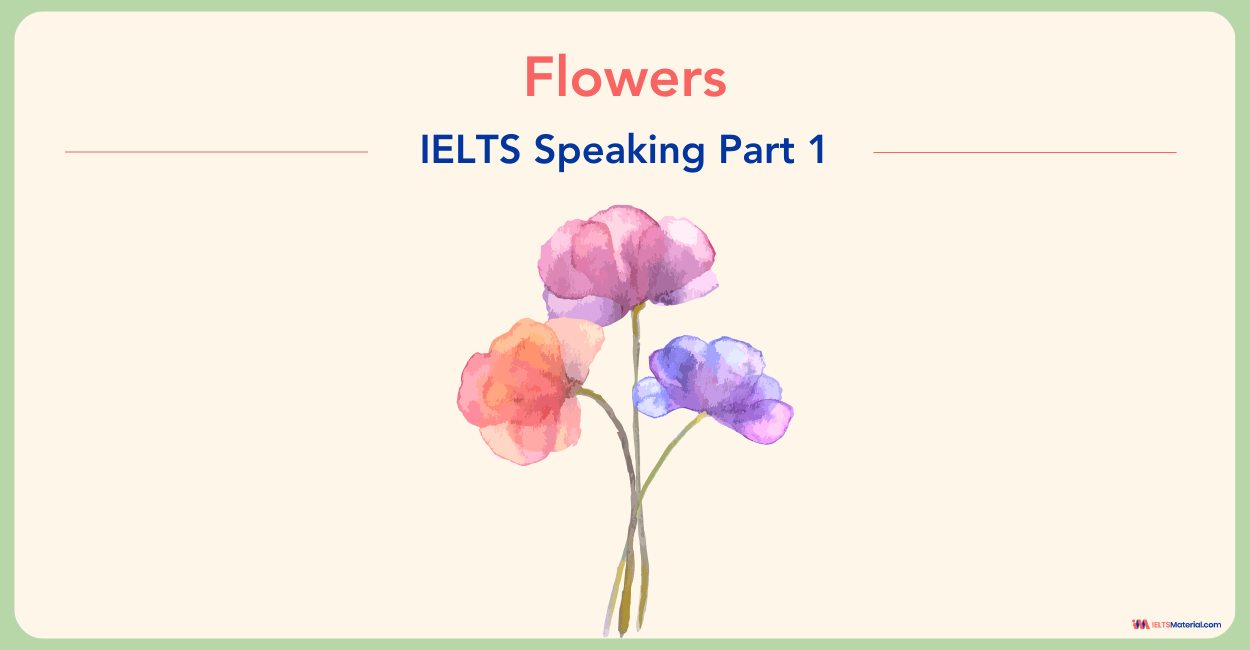
Kasturika Samanta

Post your Comments
Sugandha Mahajan
Posted on Jun 30, 2018
can you please mail me General Training Cambridge IELTS 13, 12 and 11.
Recent Articles

Courtney Miller
Our Offices
Gurgaon city scape, gurgaon bptp.
Step 1 of 3
Great going .
Get a free session from trainer
Have you taken test before?
Please select any option
Get free eBook to excel in test
Please enter Email ID
Get support from an Band 9 trainer
Please enter phone number
Already Registered?
Select a date
Please select a date
Select a time (IST Time Zone)
Please select a time
Mark Your Calendar: Free Session with Expert on
Which exam are you preparing?
Great Going!

IELTS Speaking Lesson about Transport
Download this ielts speaking lesson pdf.
Transport: Lesson Notes
For the topic of Transport in IELTS Speaking, you may need to talk about public and private transport, as well as how you think transport will change in the future.
This lesson will give you exactly the language and idioms you need to talk fluently on the topic of transport in the IELTS Speaking test.
Keith O'Hare
I have taught over 10,000 students from over 20 different countries worldwide on my online courses , many having passed the exam with a band 7, 8 and even some 9s, so hopefully, I know what I am doing! Enjoy this lesson!
What you will learn
Transportation vocabulary ielts.
When it comes to transport, in IELTS Speaking you may be asked about both public and private transport and the differences, giving examples.
Here is some essential vocabulary for that.
Public transport (open to the general public – usually with schedules , regular routes and you pay a fee)
We can also refer to public transport as –
Public transpor ta tion
Public tra nsit
- Monorails and tramways
- Subways / The Underground / The Tube (London) / The Metro
- Taxi – tuku – rickshaw – cab – über
- Rented Bikes
- Ferries, ships, boats
Private transport
- Scooter / moped / motorbike
- Rollerskates / skateboard
In the lesson we listened and identified the different means of transport / travel. Notice the grammar and prepositions we can use to talk about different kinds of transport.
- I took / got a boat / ship / ferry / train
- She caught the Subway / Underground / train
When actually boarding a vehicle we can say:
- She got into her car / taxi
- I got on the bus / train / plane
Generally speaking we can use travel by
- She was lucky enough to travel by helicopter
- I like to travel by train, taxi, car, plane….
When a means or transport is leaving we can say:
- The plane took off (and later landed) / departed
- The train / coach left / departed at 6 p.m.
Collocations
Get stuck in the traffic = cannot move because there is a traffic jam
I hate being stuck in traffic
A travel itinerary = the route of the trip
I want to travel abroad (v.)
Domestic travel (n.)
I travel back and forth to somewhere (= go between 2 places many times)
I live in Spain, but I travel back and forth to England twice a year.
I like to travel light = I don’t take many suitcases with me
Phrasal Verbs
To get around = to move around (a city)
I get around my city by car most of the time.
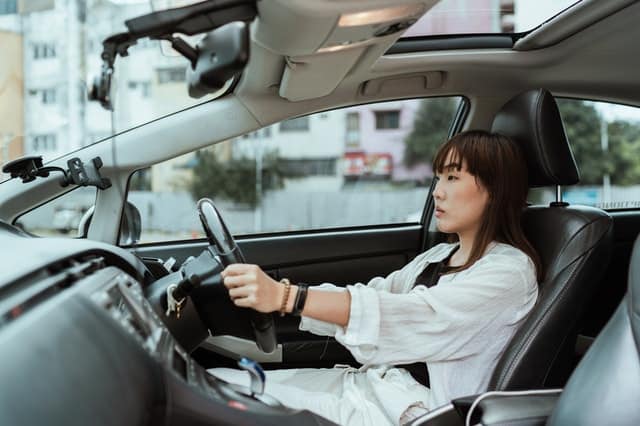
Getting Around your Hometown
Here are some nice phrases you can use to answer this question
- I tend to move around by bus , it’s really cheap and convenient.
- I typically walk everywhere. I live in a small city so it’s easy to get around on foot.
- I don’t like driving because there are too many cars.
- It’s congested = too many cars = a lot of traffic jams
- There many cars in the rush hour (= peak time people go to work)
- Cars are bumper to bumper (=close together and so cannot move)
- Infrastructure (n. / uncountable) = roads, buildings, bridges
- It’s a nightmare = a terrible thing
- Pedestrian area (a pedestrian is a person who walks)
- Walking is so easy and a pleasure because we have so many pedestrian areas.
Delays When Travelling
- I get (on) the train to Wales = take / travel by train
- The hassle of driving = the stress and trouble
- I was held up in traffic and missed the flight
- I missed the plane = I was late and didn’t catch it
- It was a disaster = a terrible thing
- I got my money back in the end
The following both mean arrive well before the necessary time
- Arrive in plenty of time
- Arrive with time to spare
IELTS Speaking Topic: Transport in the future
Here are some phrases you can use to discuss this subtopic
- I suppose electric cars will be more popular
- I suspect cars running on gas will be a thing of the past
- Electric vehicles = without gas or petrol
- With climate change getting worse , more and more transportation will run on electricity
- Everything is going in that direction
- Driverless cars = cars without a driver
- Hire a car = rent a car
- Licences will become redundant – we don’t need them anymore
- Manual cars = cars driven with a gearstick (opposite is automatic car)
- A pain in the ass = a big problem
- When it becomes mainstream – popular in everyday usage
- I might start using a driverless car, when they become mainstream
- It would make all the difference = it would have a big impact
IELTS Speaking Topics Part 3
Idioms to talk about transportation.
My wife is a backseat driver = someone who doesn’t drive, but tells the drive how to drive!
At last, I am in the driver’s seat = to be in control
I got to the train station in the nick of time = just in time
We made it to the airport on time by the skin of our teeth = just managed to do it (often meeting a deadline)
It’s already 6 o’clock and time we hit the road = to leave / start a journey
I have itchy feet = I love travelling / I want to travel
I have to get up at the crack of dawn = very early
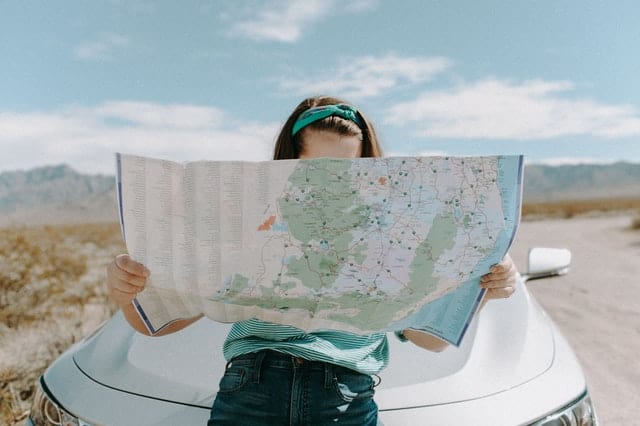
Students' Questions about Transport
Keith, what type of transport is very popular in your country?
It’s a good question. I think, in my country, I mean talking about England; probably the trains are one of the most popular kinds of transport.
Lots of people like to take the train, the inter-city rail system.
It’s relatively cheap although, unfortunately the trains are notorious for (= famous for something bad) being late and I think that lack of punctuality is a
real downside for catching the train. Despite that, it’s still a very popular way of getting around the country.
More IELTS Speaking live lessons for you
If you liked this lesson, leave a comment below!
There are more lessons you can follow in the links below too.
TECHNOLOGY in IELTS Speaking. How to talk about technology, the internet and artificial intelligence.
HOLIDAYS in IELTS Speaking . Discover the 10 things the British do on holiday and learn the useful vocabulary and idioms to talk about it.
CITIES in IELTS Speaking . Learn how to introduce your city, as well as talk about advantages and disadvantages of living in cities.
Find our more about IELTS Speaking Part 2
Find our more about IELTS Speaking Part 3
Speak Better English
Free resources.
- Useful Tools
- Vocabulary Guide
- Pronunciation Guide
- Study Guides
- YouTube Channel
IELTS Speaking Test Info
- Profile on LinkedIn
- Privacy Policy
Privacy Overview
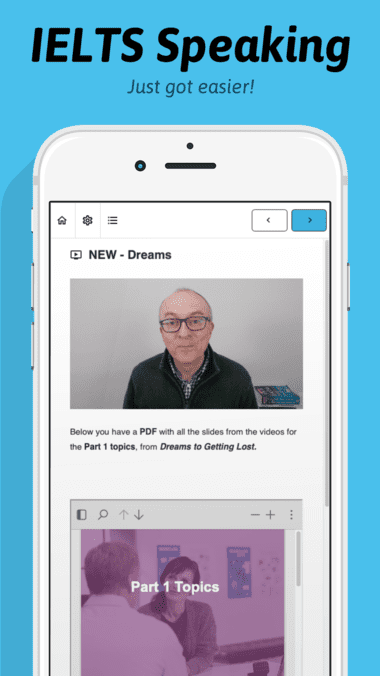
Better English
Better answers, higher score, try my online course, ielts speaking success - get a band 7+ gold.
readingielts.com
(2024) ielts speaking part 3 topic travel and transport – free lesson, ielts speaking part 3 topic travel and transport.
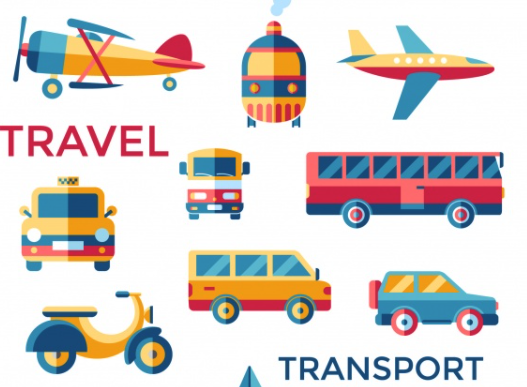
1. How do most people travel long distances in your country?
I’d say that the main ways are cars, buses and trains. If someone has a car, I think this is their preference because to be honest the trains are not that much cheaper where I live. Also there are often delays with the trains which can be a real pain, so you may end up with a really long journey.
The buses are a bit cheaper but I don’t think that is such a comfortable way to travel. There is the option to travel by plane as well of course, but most of the bucket airlines go abroad – you can’t really travel that cheaply by plane within the country. So then, cars are really the best option, and of course they give you the most freedom when you are travelling.
2. Have the types of transport people use changed much over the last few decades?
I don’t think they have really. We’ve had the transport I mentioned before for many decades now in my country, and it is much the same today. Of course cars have become much more popular as people’s incomes have risen which accounts for the problems we see on the roads today such as congestion and more accidents and pollution.
This has probably led to some changes within cities. Many have now introduced environmentally friendly forms of transport such as trams and guided buses that don’t run on gas and mean that people can travel without the use of the car. There has also been an increase in air travel, but like I said, this is quite expensive in my country so most cannot afford it
3. What kinds of improvement have there been in transport in your country in recent years?
There has been several ways that transport has improved. More major roads have been built which means it is easier to travel long distances, though of course some would argue that more roads are not an improvement. They can be an eyesore in the countryside and they have encouraged more people to drive which may mean these improvements ultimately don’t work because there are more cars using the roads.
As I mentioned before, there has been the introduction of mass transit in many cities, such as trams and trains. In our capital city they have also extended the underground system so it now links many more areas of the city. This has helped many people as commuting times are horrendous if you have to travel on the roads. Those are the main improvements.
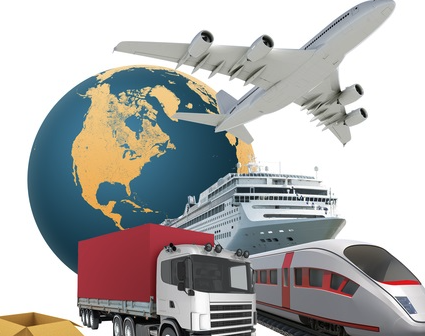
IELTS speaking part 3 British Council
MORE IELTS SPEAKING PART 3 SAMPLE
About The Author
reading ielts
readingielts.com always tries to share the best quality articles to help you in the IELTS preparation.

Leave a Reply Cancel Reply
- A Beginner’s Guide to IELTS
- Common Grammar Mistakes [for IELTS Writing Candidates]
Writing Correction Service
- Free IELTS Resources
- Practice Speaking Test
Select Page
IELTS Topics: Transport
Posted by David S. Wills | Nov 30, 2019 | IELTS Tips | 0
There are many different topics that come up in the IELTS exam, and one of them is transport. This is not a main topic that would necessarily appear by itself, but rather one that would probably be mixed with other topics like society or technology .
Nonetheless, it is an important everyday issue and thus it is quite a common feature of the IELTS exam. It could be in a question you are asked for speaking, you might have to write an essay on it for writing, or you could find it mentioned in the listening or reading exams. Basically, it’s common and so it’s important.
I’m sure that anyone reading this article is able to say a few things about technology. You probably know the basic vocabulary – car, bus, train, airplane, and so on. But can you talk at length about them? Do you know some synonyms for these words or methods to talk about them? How about less common modes of transport? What about the prepositions that you should use when talking about modes of transport?
Today, I am going to teach you some vocabulary and grammar for the IELTS topic of transport, and then we will look at some sample questions and answers from the actual exam.
Transport Vocabulary
As I said before, you are probably familiar with many of the most important words of transport vocabulary that would be required for a good IELTS score. You wouldn’t need to know any particularly obscure words (although it might help you a little) such as the internal parts of an engine or the names of archaic forms of transport.
I have put together a short PPT that contains some transport vocabulary that might help you with your IELTS preparation. Obviously, I have not included “car” and “bus” because these are too easy. I have tried to include some more advanced words that might help you talk more accurately about the topic.
Grammar and Transport
Prepositions.
It is never enough just to know some words for IELTS. Words are only useful when you can join them with other words in order to make a full clause or sentence. As such, you should think about collocations – that means groups of words that naturally go together.
One thing that many English learns find tricky is the way that prepositions are used with transport. We use “in” or “on” but there appears to be no logical distinction between the two:
If you were to think of a rule, it seems that in many cases, when you are inside something, you can say “in” it – such as a car. However, there are also things that you are inside, like a train or plane, for which we say “on.” As such, there is no perfect rule to remember how to use these!
You can also see that there were some cases when “on” and “in” were both possible. We can say “in a boat” or “on a boat,” although there is a difference. If I am “in a boat” then it is a small boat, but if I am “on a boat” then it a big one. We are unlikely to say “in the subway” but it is possible. More commonly, “in the subway” means “in the subway system,” while “on the subway” means “on the subway train.”
There are other collocations, of course, that you can learn in your studies. One of them involves the word “crash.” A lot of people know this word but don’t know how to use it. Let’s look at some examples:
- I crashed my car last week.
- The bus crashed into a lamppost.
- There was a terrible plane crash.
As you can see, we use “crash” as a verb followed by a noun phrase when we don’t say what was crashed into. We can also follow the verb with “into” and then explain what the thing (which came before the verb) crashed into. Finally, we can use it as a noun.
I recently encountered an IELTS student using “crash” to refer to the dangers of children playing near roads. He said that cars might “crash into children.”
This is very logical, but actually it is not correct. When we talk about cars hitting people, we do not say “crash” because this refers to two big things (a car and a wall, for example). For hitting people, we might say something like the following:
- A young boy was run over (by a car) last weekend.
- You must be careful not to hit anyone while driving through a village.
- The old lady was run down by a speeding driver.
To be able to talk about transport, like anything else, you need to be able to use tenses accurately and to make sure that they match correctly with the subject of the sentence.
Look at the following and find out what is wrong with it:
These days, traffic in the cities can be very heavy, so bike is a good way to get to work or school.
In this case, actually the verb is correct but the noun is wrong. We should use the present simple and a plural subject: “bikes are a good way…” The reason for this is that when we state general facts or opinions, we should use this tense. We also use the plural form of the noun in most cases, although it is possible to pick one hypothetical example:
These days, traffic in the cities can be very heavy, so a bike is a good way to get to work or school.
When you are talking about your own experiences, you will probably use past tenses, but if it is an on-going part of your life you may use the present simple. For example, you might say something like:
When I was in school, I took the bus from outside my parents’ house, but later at university I lived on campus and so I walked . These days, I mostly cycle to work , but I hope to buy a car so that I can drive to work in future because it gets a bit too cold in winter.
Here, we began talking about the past, so we used past simple (took, walked). However, the discussion moved into the present, so the present tense was correct (cycle) and then when the future was appropriate, I used that (drive).
IELTS Speaking Questions about Transport
There are many possible questions that could occur in the IELTS speaking test related to the topic of transport. Let’s look at a few of them and I will write some sample answers for you, with highlighted words and phrases. The following three questions are from part one of the speaking test.
Q: How did you get here today?
A: I drove here from my home. It’s actually my parents’ car, but they lent it to me for the day.
Q: Do you ever use public transportation?
A: Yes, I sometimes take the bus or subway , but it depends where I’m going. I passed my driving test a few years ago so when I can borrow a car, I will drive, but otherwise I rely on public transport .
Q: Is there a lot of traffic congestion in your hometown?
A: No, it’s not too bad actually. In fact, there is almost never a traffic jam . The only problem we have is that sometimes cars go too fast through the quiet streets, which is dangerous considering that children often play by the roads.
IELTS Writing and the Topic of Transportation
The topic of transport could appear in either part of the IELTS writing test. For task one, it is possible that you would have questions about a line graph or bar chart showing different types of transport, or perhaps a map that includes roads. For task two, it’s probable that you will be asked to discuss an issue such as reducing pollution in cities.
Below, I will give you a sample answer for both a task one and task two question. Again, I will highlight some useful words and phrases.
Task 1 Question
The following bar chart shows the different modes of transport used to travel to and from work in one European city in 1960, 1980 and 2000.
Sample Answer
The bar chart compares modes of transportation for people commuting to work in a European city. It looks at data from a forty year period, beginning in 1960 and ending in 2000. There were significant changes during this time.
In 1960, the most popular means of getting to work was by walking, with nearly 35% of people choosing to go on foot . Similarly, a quarter of people chose to cycle to work. These methods were far more popular than taking a car, which only about 5% of people did.
These data saw a complete reversal over the next forty years, with walking and cycling falling in popularity, while driving skyrocketed to become the most common method of commuting . By 2000, the figures for these three methods had nearly inverted.
Buses, on the other hand, started and ended the period at around the same level, although they spiked in popularity in 1980, briefly being the chosen type of transport for about a quarter of people.
Task 2 Question
Some people think it is necessary to spend large sums of money on constructing new railway lines for very fast trains between cities. Others believe the money should be spent on improving existing public transport.
Discuss both these views and give your own opinion.
There is usually significant debate when it comes to very large sums of money being spent on infrastructure improvements . In recent years, it has become common for countries to invest in high-speed rail projects that connect the whole country, but this is often criticized when that money could have alternatively been spent upgrading existing transport systems . This essay will explore both perspectives, and decide that both ideas have merit.
High-speed rail is a great way of moving people around a country quickly and with comparatively little damage to the environment. As such, governments around the world are quick to invest in such schemes. The benefits are obvious: these trains can move large numbers of people across hundreds of miles in just a few hours, making them faster and more economical than cars . Although a plane is quicker, trains are more environmentally-friendly and involve less hassle than going to an airport .
However, high-speed rail is quite expensive, and when governments suggest building them, others often point out that there are already public transportation networks in the country that could be vastly improved with that same money. In small countries like the UK, existing railway lines could be upgraded to keep them running smoothly instead of building new ones. Moreover, the money could be spent on improving buses and trams, or repairing damage to roads to keep traffic flowing .
There is no easy answer to this debate, but it is clear that both investing in high-speed rail and investing in the existing infrastructure could potentially yield great benefits for a country.
About The Author
David S. Wills
David S. Wills is the author of Scientologist! William S. Burroughs and the 'Weird Cult' and the founder/editor of Beatdom literary journal. He lives and works in rural Cambodia and loves to travel. He has worked as an IELTS tutor since 2010, has completed both TEFL and CELTA courses, and has a certificate from Cambridge for Teaching Writing. David has worked in many different countries, and for several years designed a writing course for the University of Worcester. In 2018, he wrote the popular IELTS handbook, Grammar for IELTS Writing and he has since written two other books about IELTS. His other IELTS website is called IELTS Teaching.
Related Posts
Speaking About Media [IELTS Vocabulary]
December 20, 2021
Describe a Large Company that you are Interested in [IELTS Speaking]
April 26, 2021
Improve Your IELTS Writing With Parallelism
March 29, 2016
IELTS Questions and Answers: Studies and Work
March 22, 2018
Leave a reply Cancel reply
Your email address will not be published. Required fields are marked *
This site uses Akismet to reduce spam. Learn how your comment data is processed .
Download my IELTS Books
Recent Posts
- How to Improve your IELTS Writing Score
- Past Simple vs Past Perfect
- Complex Sentences
- How to Score Band 9 [Video Lesson]
- Taxing Fast Food: Model IELTS Essay
Recent Comments
- Mariam on IELTS Writing Task 2: Two-Part Questions
- abdelhadi skini on Subordinating Conjunction vs Conjunctive Adverb
- David S. Wills on How to Describe Tables for IELTS Writing Task 1
- anonymous on How to Describe Tables for IELTS Writing Task 1
- David S. Wills on Writing Correction Service
- Lesson Plans
- Model Essays
- TED Video Lessons
- Weekly Roundup

- Congestion(n) – traffic.
- Urban (adj) – like a city.
- Motorized vehicles –cars/buses/bikes that use an engine to move.
- To forbid (v) - to not allow.
- Eco-friendly (adj) – not harmful to the environment.
- Emissions – harmful gases released from cars, motorbikes etc.
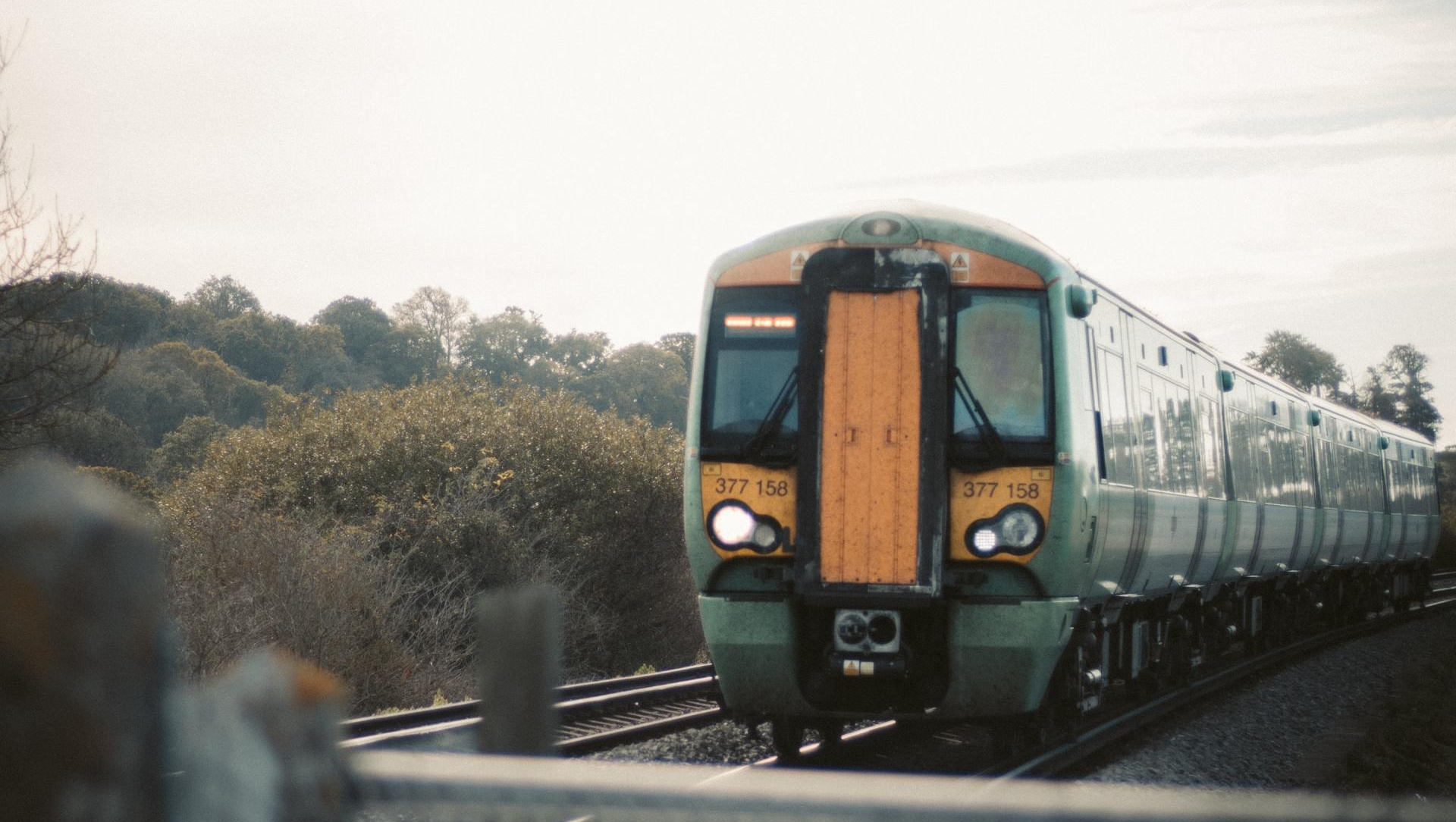
Want to get 6.5 or above?
Join our ielts speaking masterclass course.

© ESSENTIAL IELTS 2021 | ALL RIGHTS RESERVED
- Ebooks & Courses
- Practice Tests
- Transportation Vocabulary
This page contains over 120 key words and phrases of transportation vocabulary with explanations and examples of how to use them in a sentence. This will help you to learn how to use them correctly.
Transportation is a common everyday topic in many people’s lives so it’s not surprising that it's a popular subject in the IELTS exam. It thus makes sense to learn a good variety of transportation vocabulary to help you answer any questions that come up.
Here are a few things you could be asked about:
- Public transport in your town or city
- A specific type of transportation
- A journey you’ve made
- Common problems related to transportation
- Transportation & the environment
- The future of transportation
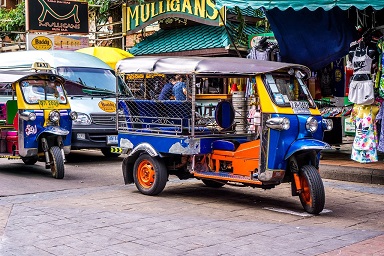
Don’t try to learn all 120+ words and phrases. Look at my suggestions below as to the best way to use this comprehensive list.
To ensure that you’re well prepared to answer any transport-related questions, I’ve included four things here:
- IELTS-style questions on the topic of transportation
- Sample answers
- A list of common transportation vocabulary with definitions & sample sentences
- Links to online reading and listening resources
You’ll find PDF downloads of both the questions and sample answers and the transportation vocabulary list at the bottom of the respective sections.
Although the topic could come up in any part of the exam, the questions on this page relate to the Speaking test because this part of the exam offers the broadest range of possible questions on the subject. They give the best opportunity for me to demonstrate the vocabulary and for you to practise using it.
I’ve included IELTS-style questions and answers for all three parts of the Speaking test and have highlighted keywords and phrases in bold .
You'll find these words and phrases, and many others, in the vocabulary list beneath along with explanations and sample sentences and an audio to listen to the pronunciation.
The transportation vocabulary list contains words and phrases relevant to all parts of the IELTS exam as you may be asked to write about the topic or get a reading or listening text about transport.
Finally, at the bottom of the page, I've added links to topical articles, short videos and podcasts that will help you to improve both your transportation vocabulary and your reading and listening skills.
IELTS-Style Speaking Test Questions and Answers
1) What kinds of public transport are there where you live?
We do have a bus service in my area. It’s fine for people who live in the towns but not so regular for those living in the many small villages. There is also a train that goes to the nearest city a few times a day.
2) Do you prefer public transport or private transport?
I definitely like private transport best. With my car , I can go where I want to whenever I choose to. To make a journey on public transport , you are not so independent .
3) How do you travel to work?
In the winter, when it’s cold and wet, I drive my car to work but I always get stuck in a t raffic jam . As the weather improves, I go by bike to avoid the congestion .
4) Is a bicycle a good means of transport?
Most certainly, because you don’t get held up in heavy traffic . Cycling also keeps you fit and is environmentally-friendly .
5) Do you think that there should be a separate lane for bicycles?
I think that cycle lanes are a very good idea as they help to keep cyclists safe from vehicles . Since we introduced them in my country, more people have started cycling to work.

Describe a method of transport that you enjoy using.
You should say:
- what kind of transport it is
- how often you use it
- where you travel using it
and explain why you enjoy using it.
One form of transport that I look forward to going on is a train . This is because I only use it when I’m going away somewhere exciting, like on holiday or a weekend break.
We have quite a good rail network in my country so it’s easy to get where you want to go. However, I live in a rural area and there is just one railway station for the whole region and it only goes to the nearest city. You then have to catch another train to go everywhere else. This isn’t very convenient . Many people drive 30 miles to the nearest town on the main line and get on the train there. I sometimes do that too.
I do quite enjoy train journeys . They are more relaxing than driving and you can look at the scenery out of the window. Having said that, the last time I took the train , it was very overcrowded and I couldn’t get a seat so I had to stand up the whole way.
My last few trips have been up to London for a few days away with a friend. It takes about three hours so we can be there by late morning. While we’re in the city, we occasionally use the underground but mostly get around on foot .
I also use the train to get to the airport if I’m going abroad. You get off at a Reading and then catch the shuttle to the airport. It’s so much easier to plan a trip now that you can see train timetables online.
I sometimes travel by train when I’m visiting other countries. It can be the best way to get around and it’s great if you enjoy meeting the local people. I once went on a train in India. It was packed with people but everyone was so friendly and we all shared our snacks.
The only other time I go on a train is when I take a trip on a steam railway. There are two in my part of the country where the old trains, railway line and stations have been restored. There is something very special about them and they are a huge tourist attraction. Everyone enjoys a ride on a steam train .
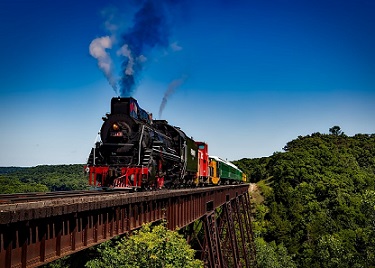
1) How do most people travel long distances in your country?
I’d say that the car is the most popular form of transport for long journeys . My country is quite small so you can reach anywhere in a day and most places within a few hours. You are independent when you drive and you just put your luggage in the car without having to carry it anywhere.
A lot of people use the train , both for long distance pleasure trips and to commute to the cities for work. Our cities have a big problem with congestion and it costs a lot to park your car so it’s more sensible to use the rail network .
There are also shuttle flights between the major cities so a lot of businessmen use these. The only time I travel by plane within my own country is when I’m visiting relatives up in Scotland as it’s a long way away from where I live. A plane is the quickest and easiest way to get there.
2) Do you think that transport problems are worse in urban or rural areas?
That’s difficult to say because transport issues in cities are very different to those in the countryside.
The biggest problem in our cities is congestion . There are just too many vehicles and the traffic jams are terrible. There always seem to be roadworks going on which cause bottlenecks and make things even worse. What’s more, all the cars , lorries and buses sitting in the long traffic queues emit exhaust fumes which leads to air pollution , another major concern in urban areas.
In the countryside, on the other hand, the main issue is the lack of an adequate public transport system . If you live in a small village, you might not even have a bus service so it’s impossible to get around unless you have your own private transport .
There used to be an extensive rail network serving small communities but in the 1960s, hundreds of lines were closed. Now you can only get to the main towns by train .
To weigh it up, I’d say that transport problems are equally serious in both urban and rural areas. There are just different issues.
3) Are too many people dependent on cars as a means of transport in your country?
In my opinion, most people rely on their car far too much. Many are too lazy to walk places or to commute by bike and they can’t be bothered to take the bus .
Most areas have a real problem with rush hour traffic . Although this is always blamed on people driving to work, it is far less busy on the roads during the school holidays, which suggests that the real issue is parents taking their kids to school in the car . I think that many more should make the journey on foot . This would be better for the children’s fitness as well as cutting down on congestion .
Not all the parents are being lazy. Lots just don’t have time to walk as they are rushing off to work but they could at least set up carpools as this would help to reduce the heavy traffic in the mornings.
If we had better weather in my country then I think that more people would commute by bike and you certainly see more people cycling to work in the summer.
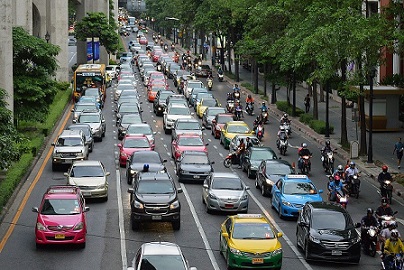
Click this link to get a PDF download of these practise questions & sample answers.
Download PDF Now
* Important
- Do not try and learn this list of transportation vocabulary.
- Identify the vocabulary you find useful for answering practise questions about this topic.
- Record these in your vocabulary notebook and practise using them regularly.
I recommend that you create your own answers to the transportation questions on this page. You will find many other IELTS-style practise questions by searching online.
For help on how to learn vocabulary, what to learn and how to record it, visit these pages:
How to Learn Vocabulary for IELTS
Top 6 Types of IELTS Vocabulary & Topic Word Lists
Transportation Vocabulary – Common Words & Phrases
Transportation Vocabulary Set 1: Key definitions
vehicle – a machine, usually with wheels and an engine, used for taking people or goods from one place to another, especially on roads
- Three vehicles were involved in the accidents near my house.
to transport – take or carry people or goods from one place to another using a vehicle
- Their furniture was transported to their new house in a large lorry.
transportation – a vehicle or system of vehicles, such as buses, trains, etc. for getting from one place to another
- What form of transportation are you going to use to get to the airport?
a means / form of transportation – any vehicle that you can travel in or on or use to carry goods in
- Bicycles are a cheap means of transportation and also keep you fit.
transport system – a facility consisting of the means and equipment necessary for the movement of passengers or goods
- The transport system in my country needs a lot of improvement.
public transport – a system of vehicles such as buses and trains that operate at regular times on fixed routes, charge set fares and are used by the public
- It’s much cheaper to use public transport in the city than drive a car.
private transport – means of transport that are not available for use by the general public such as your own car
- Most people prefer to use private transport to public transport as it makes them more independent.
traffic – the vehicles, pedestrians, ships, or planes moving along a route
- There was a lot of traffic on the roads this morning.
infrastructure – the basic systems and services, such as transportation and power supplies, that a country or organization uses in order to work effectively
- The earthquake caused serious damage to the area’s transport infrastructure .
a journey – the act of travelling from one place to another, especially in a vehicle
- The train journey took them through beautiful countryside.
Transportation Vocabulary Pronunciation
Transportation Vocabulary Set 2: Means of transport
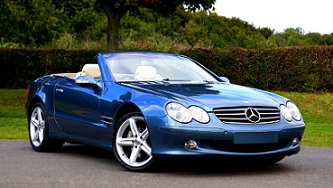
Transportation Vocabulary Pronunciation
Transportation Vocabulary Set 3: Roads & traffic
road – a long, hard surface built for vehicles to travel along
- Shakira waved to her mum as the bus drove off down the road .
lane – a division of a road marked off with painted lines and intended to separate single lines of traffic; a narrow rural road
- I find it quite scary driving in the fast lane of the motorway.
cycle lane – part of a road marked off with painted lines, for use by cyclists
- There have been far fewer cyclists killed on the roads since the government introduced cycle lanes in our towns and cities.
bus lane – part of a road marked off with painted lines, for use by buses
- Car drivers are not allowed to use the bus lanes .
bypass / ring road / beltway – a road which circles a town or city and enables you to go faster from one point to another.
- I usually take the ring road to visit my brother as the roads through town are always congested.
freeway / highway / expressway – a public road, often with multiple lanes, especially an important road that joins cities or towns together
- The traffic in the city centre moved slowly but once Raul hit the freeway there was less traffic and he was able to drive much faster.
motorway (UK) – a road with three lanes going each way
- Motorways are vitally important for the transportation of goods around the UK.
overpass – a bridge that carries one road over another road
- No-one believed that the new overpass would really ease traffic congestion but it has made a noticeable difference.
junction – where two roads meet
- Aksel only just missed the car that pulled out in front of him at the junction .
roundabout – a road junction at which traffic moves in one direction around a central island to reach one of the roads converging on it
- The traffic flowed much better when they replaced the traffic lights with a roundabout .
traffic light – a set of automatically operated red, amber and green lights for controlling traffic at road junctions and pedestrian crossings
- I have to drive through ten sets of traffic lights on the way to work and if I’m late, you can be sure they’ll all stop on red.
traffic jam – a line of vehicles moving very slowly or not at all
- The traffic jam was caused by roadworks near the shopping centre.
Collocations:
- to be caught in traffic / a traffic jam
- Mayuree missed her train after getting caught in traffic on the way to the station.
- t o get stuck in traffic / a traffic jam
- I nearly always get stuck in a traffic jam on my way to work.
heavy traffic – a lot of vehicles on the road
- A sunny weekend is forecast so there will be heavy traffic on the roads as people head to the coast.
to be congested – when a road or place is so crowded with traffic or people as to hinder or prevent freedom of movement
- The roads are particularly congested during the rush hour.
congestion – the state of being congested
- Congestion is a serious problem in most cities across the world.
queue – a line of people or vehicles waiting for something
- There were so many people heading into town for the sales that I had to queue for the car park.
roadworks – building or repair work on a road
- The roadworks were causing long delays for people travelling to work.
diversion – a different route used because a road is closed
- The accident closed the road and traffic had to take a two-mile diversion to get into town.
to be held up – to be stopped and delayed because of work on the road, diversions or accidents
- Soo-min apologised for being late and explained that she’d been held up in traffic.
bottleneck – a place where a road becomes narrow or a place where there is often a lot of traffic, causing the traffic to slow down or stop
- The roadworks were causing a serious bottleneck on the main road into town.
speed limit – the fastest rate at which you are allowed to drive in a particular area
If you are caught exceeding the speed limit , you will have to pay a fine.
speed camera – camera set up by a road to photograph cars exceeding the speed limit
- Most drivers slow down when they are approaching a speed camera .
road accident / car crash – a bad incident involving vehicles that happens unexpectedly and unintentionally, typically resulting in damage or injury
- Two people were taken to hospital following the car crash on the freeway.
Transportation Vocabulary Set 4: Travel
to commute – travel some distance between one's home and place of work on a regular basis
- When Talin got her new job, she moved closer to the city so that she wouldn’t have to commute too far each day.
to travel by – to use a particular mode of transport, e.g. bus, car, train, bike, etc, to get from one place to another
- To get to work, I travel by bus.
to take – to use a particular mode of public transport, e.g. bus, train, taxi, plane
- She didn’t want to wait for a bus in the pouring rain so took a taxi instead.
to get on – to get into a bus, train or plane
- They arrived at the station just in time to get on the train before it left.
to get off – to disembark from a bus, train or plane
- Shona pushed the bell as she wanted to get off the bus at the next stop.
bus route – the fixed, regular journey made by a bus
- One of the reasons I moved to my new address is because it’s on the main bus route into town.
bus service – a public facility whereby the general public can travel on a bus from one place to another along set routes for a fixed fee
- There is a good bus service into town from where I live.
timetable / schedule – a plan of the times when particular events are to take place
- Jared’s interview was at 9.30 a.m. and the timetable showed that the early train would get him there in plenty of time.
rush hour – the times at the beginning and end of the working day when many people are travelling to or from work
- Ogasi was so fed up with the rush hour traffic jams that he bought a bike to cycle to work.
carpool (US) / car share (UK) – an arrangement between people to make a regular journey together in a single vehicle, usually taking turns to drive
- If more people organized carpools , the roads wouldn’t be so congested.
park-and-ride – a system for reducing urban traffic congestion, in which drivers leave their cars in car parks on the outskirts of a town or city and travel into centre on public transport
- The park-and-ride scheme was so successful that a second one was set up on the other side of the city.
the outskirts – the areas that form the outer edge of a town, city or village, that are furthest away from the centre
- It’s great living on the outskirts . It’s easy to get into the city but we are also close to the countryside.
convenient – fitting in well with a person's needs, activities, and plans
- There’s a bus stop right outside my house which makes it very convenient for catching the bus to work.
independent – not influenced or controlled in any way by other people or events
- I’m so much more independent now that I have a scooter to get around.
overcrowded – full with too many people for it to be comfortable or safe
- The tube is so overcrowded in the rush hour that it’s impossible to get a seat.
unreliable – something or someone that is not trustworthy or efficient
- Our local bus service is very unreliable and is usually running late.
Transportation Vocabulary Set 5: Transport systems
network – a group or system of interconnected people or things
- The new government made a commitment to improving the country’s transport network .
Collocations :
- road network – a system of interconnected roads
- rail network – a system of interconnected railway lines
the underground / the tube / the subway / the metro – an underground railway system in a city
- The quickest way to get around London is on the underground .
canal – an artificial waterway constructed to allow the passage of boats or ships inland
- Ship canals such as the Panama Canal and Suez Canal are vitally important for world trade.
a shuttle – a vehicle or aircraft that travels regularly between two places
- Itsuki took the shuttle from his hotel out to the airport.
Transportation Vocabulary Set 6: Transportation & the environment
fuel – a substance that is used to provide heat or power, e.g. petrol, diesel, gasoline, oil,
usually by being burned
- Scientists are working hard to develop more environmentally friendly fuels .
emissions – an amount of something, especially a gas such as carbon dioxide, that is sent out into the air and harms the environment
- Car manufacturers are under pressure to reduce exhaust emissions .
emit – to produce and discharge something, especially a gas
- Vehicles emit high levels of harmful gases into the atmosphere.
exhaust fumes – harmful gases emitted from a vehicle engine
- Many cities have a big problem with air pollution caused by exhaust fumes .
energy efficient – using only a small amount of fuel
- I chose this make of car because it is very energy efficient .
air pollution – the presence of harmful substances in the air, often consisting of waste emissions from vehicles
- Air pollution is so bad in some cities that people have to wear face-masks when they go out.
environmentally-friendly – not harmful to the environment
- Electric cars are a more environmentally-friendly than those that run on petrol.
gas guzzler (informal) – a vehicle that uses a lot of fuel
- For many people, a large car is a status symbol and they aren’t concerned about the harm their gas guzzler is doing to the environment.
Transportation Vocabulary Set 7: The future
autonomous vehicle / driverless car / self-driving car – a car capable of driving itself through a computer system
- I would be very nervous of riding in an autonomous vehicle and don’t think that they are safe.
space travel – travel through outer space
- They say that it won’t be long before members of the public are able to enjoy space travel .
high-speed rail – a passenger train that travels at a very high speed using specialised rolling stock and a system of dedicated track
- In the future, high-speed rail networks will take over from traditional railways.
Transportation Vocabulary Set 8: Other vocabulary
to go on foot – to walk somewhere
- The restaurant was only a mile from our house and we decided to go on foot so that we could all enjoy a bottle of wine and no-one had to worry about driving home.
pedestrian – a person who travels on foot
- Some areas of our city are for pedestrians only and vehicles aren’t allowed there.
to run a car – to own and drive a car
- It’s not really worth running a car if you live in the city as it’s easier and cheaper to get around on public transport.
toll – money that you pay to use a particular road or bridge
- Some countries charge motorway tolls but most of our motorways are free to travel on.
a speeding fine – a sum of money that must be paid as punishment for driving faster than legally allowed
- I was really cross with myself for getting a speeding fine but it was my own fault for driving too fast.
Transportation Vocabulary Set 9: Idioms
bumper to bumper – very close together, as cars in a traffic jam
- The traffic is usually bumper to bumper when I take the kids to school.
beat the traffic – to leave early to avoid travelling when the roads are crowded
- Sharon left for the airport at 7.00 a.m. in order to beat the traffic .
hit the road – set out on a journey
- They hit the road early as they wanted to reach the holiday cottage by lunchtime.
hitch a lift / ride – to get a ride in someone else’s vehicle
If I miss the bus, I can usually hitch a lift with a colleague who lives a few streets away from me.
Click this link to get a PDF download of this list of transportation vocabulary.
Ways to Improve Your Transportation Vocabulary
One of the best ways to improve your transportation vocabulary is through reading. Watching topic related YouTube videos and listening to podcasts is also hugely beneficial.
Here are some online resources I recommend.
Intelligent Transport
IEEE Spectrum
Science Daily
I love TED Talks. They are short videos with a powerful message and are generally very interesting. They’re ideal for improving your vocabulary and give valuable listening skills practise.
Search TED Talks - Transportation to help you improve your transportation vocabulary.
All Topic Vocabulary

Would you prefer to share this page with others by linking to it?
- Click on the HTML link code below.
- Copy and paste it, adding a note of your own, into your blog, a Web page, forums, a blog comment, your Facebook account, or anywhere that someone would find this page valuable.
Like this page?
- IELTS Vocabulary
- Back To Top
* New * Grammar For IELTS Ebooks

$9.99 each Full Set Just $ 23.97
Find Out More >>
IELTS Courses

Full details...

Vocabulary Topic Packs
Learn vocabulary for common topics while getting valuable practice answering the different types of IELTS questions.
Just $5 each
Find out more >>
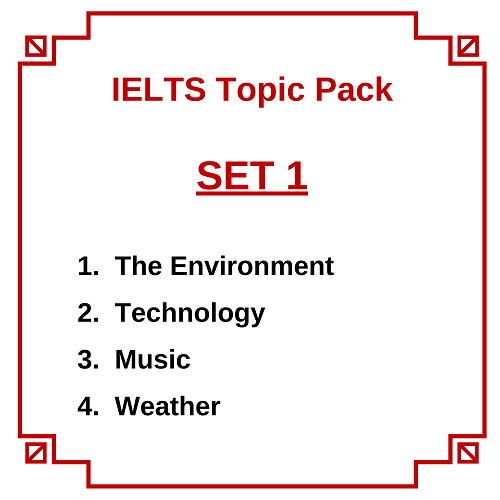
Testimonials
“I am very excited to have found such fabulous and detailed content. I commend your good work.” Jose M.
“Thanks for the amazing videos. These are ‘to the point’, short videos, beautifully explained with practical examples." Adari J.
"Hi Jacky, I bought a listening book from you this morning. You know what? I’m 100% satisfied. It’s super helpful. If I’d had the chance to read this book 7 years ago, my job would be very different now." Loi H.
"Hi Jacky, I recently got my IELTS results and I was pleased to discover that I got an 8.5 score. I'm firmly convinced your website and your videos played a strategic role in my preparation. I was able to improve my writing skills thanks to the effective method you provide. I also only relied on your tips regarding the reading section and I was able to get a 9! Thank you very much." Giano
“After listening to your videos, I knew I had to ditch every other IELTS tutor I'd been listening to. Your explanations are clear and easy to understand. Anyways, I took the test a few weeks ago and my result came back: Speaking 7, listening 9, Reading 8.5 and Writing 7 with an average band score of 8. Thanks, IELTS Jacky." Laide Z.
Contact
About Me
Site Map
Privacy Policy
Disclaimer
IELTS changes lives.
Let's work together so it changes yours too.
Copyright © 2024 IELT Jacky
All Right Reserved
IELTS is a registered trademark of the University of Cambridge, the British Council, and IDP Education Australia. This site and its owners are not affiliated, approved or endorsed by the University of Cambridge ESOL, the British Council, and IDP Education Australia.
IELTS Speaking Part 2 Topic
Describe an accident you saw..
You should say:
- Where the accident occurred
- Where you were then
- How the accident affected you
and give detailed information about the accident.
Describe a time when you missed a bus/ train/ aeroplane.
- when it happened
- where you were supposed to go
- how you missed it
and explain what you did after you missed it.
Describe a time you travelled by public transport.
- what type of public transport you used
- where you travelled from and to
- what you did during the journey
and explain how you felt about travelling in this way
Describe your favourite means of transport.
- when and how often you use it
- why you use it
And explain why it is your favourite transport.
Describe a long journey that you enjoyed.
- where and when you had it
- how you got there and how long it took
- who you went with
and explain what you liked about this journey.
Write your answer in the comments below and get free feedback and correction
Get your writing and speaking corrected.
Join the ever growing group of students who we helped on the road to success and get the professional help you have been looking for.
Write your answers to the questions here:
Leave a reply cancel reply.
Your email address will not be published. Required fields are marked *
This site uses Akismet to reduce spam. Learn how your comment data is processed .
- Why choose us
- How We Achieve
- Our Materials
- Terms of service
- Privacy Policy
- Cookie Policy
- Writing Correction
- Speaking Correction
- One-to-One Courses
- Group Courses
- Pronunciation
- General Overview
- General Task 1
- General Task 2
- Academic Overview
- Academic Task 1
- Academic Task 2
IELTS is a registered trademark of University of Cambridge, the British Council, and IDP Education Australia. This site and its owners are not affiliated, approved or endorsed by the University of Cambridge ESOL, the British Council, and IDP Education Australia. The information on this site is for information purposes only.
ieltsassistance.co.uk © 2018 All rights reserved.

Can’t find what you need? Ask our teachers:
IELTS Preparation with Liz: Free IELTS Tips and Lessons, 2024
- Test Information FAQ
- Band Scores
- IELTS Candidate Success Tips
- Computer IELTS: Pros & Cons
- How to Prepare
- Useful Links & Resources
- Recommended Books
- Writing Task 1
- Writing Task 2
- Speaking Part 1 Topics
- Speaking Part 2 Topics
- Speaking Part 3 Topics
- 100 Essay Questions
- On The Day Tips
- Top Results
- Advanced IELTS
Transport for Speaking Part 2
A Vehicle You Would Like
Describe a vehicle you would like to have. You should say: what vehicle it is how you first heard of it what it looks like what it would be used for and why you would like to own it
A Method of Transport You Enjoy Using
Describe a method of transport that you enjoy using. You should say: what kind of transport it is how often you use it where you travel using it and why you enjoy using it
A Train Journey You Have Taken
Describe a train journey you have taken. You should say: where you were going who you were travelling with what the purpose of your journey was and what was enjoyable about it
An Uncomfortable Way to Travel
Describe an uncomfortable way that you have travelled. You should say: what kind of transport it was who you were travelling with why you were travelling that way and what was uncomfortable about it
Advanced IELTS Lessons & E-books

Click Below to Learn:
- IELTS Test Information
Copyright Notice
Copyright © Elizabeth Ferguson, 2014 – 2024
All rights reserved.
Privacy Policy & Disclaimer
- Click here: Privacy Policy
- Click here: Disclaimer
Return to top of page
Copyright © 2024 · Prose on Genesis Framework · WordPress · Log in
Free IELTS lessons signup

- Academic practice
- General practice
- Task 1 Academic
- Task 1 General
- Task 2 (essay)
IELTS Speaking practice: Travel & Holidays
Travel & Holidays Friends Technology Sport Food Education Weather Environment Music Books & Films Health
On this page you can find full IELTS Speaking sample with questions related to Holidays topic .
See IELTS Speaking vocabulary for Travel & Holidays topic >
This IELTS Speaking sample has 3 parts with questions related to Holidays topic. Remember that on the real test you will get a mix of questions from different topics , but for educational reasons we used thematic questions about holidays in this IELTS Speaking sample. It is very beneficial to read IELTS Speaking samples with answers and rememeber IELTS Speaking vocabulary by topics.
Our special formatting styles:
Useful linking phrases are in blue IELTS speaking vocabulary is in bold (put your mouse over such text to see explanations).
Do you like travelling?
Yes, definitely! I think seeing the world, from great historical monuments to white sandy beaches, is what life is all about Something that brings sence to life. . It's a very interesting way to learn about new cultures and explore new places.
What is your favourite type of holiday?
I really like going to the countryside, getting away from it all Escaping in order to rest from a daily routine. . Nothing relaxes me as much as wilderness... I am tired of tourist traps Places with many tourists. and usually go off the beaten track To visit a place where a few people go. ...
What do you do on holidays?
I prefer visiting various museums and places of interest Memorable and honorable places. . For instance , on my last vacation I was to Rome and I visited 12 museums. It was fantastic! Of course, sometimes I go shopping with my friends or relatives too... But I don't find it near as exciting...
Are there many tourists visiting your country?
Probably yes ... My country has different tourist attractions Places which tourists tend to visit. in many cities, especially the capital... For example , my country has old-time religious traditions... That's why we have a lot of ancient cathedrals and churches that are interesting for both tourists and local citizens...
Now, have a look at the card and prepare a monologue.
- When you visited it
- Where is it situated
- Who you went with
and say what about it you like the most
A couple of years ago I went on a holiday to Paris with my parents… it is a very popular tourist destination Tourist attraction. , since it has various places of interest Memorable and honorable places. , such as ancient museums and monuments… That's why there are always hordes of tourists Crowds of tourists. ... So we decided to go out of season To go not within the main holiday period. in the autumn… Fortunately , the weather was great, and we did not waste any days watching TV at the hotel... it was a memorable holiday … we enjoyed breathtaking views Amazing views. from the top of the Eiffel tower and dined in cozy little restaurants. I would certainly recommend visiting Paris, it is a picturesque Beautiful. city.
Why do you think tourism is so developed now?
Well, because it is a lot easier to travel nowadays… you can choose charter flights Cheap regular flights. and find various youth hostels A cheap hotel. all around the world, so you don’t need to spend much money on the travelling. Moreover, you can book a trip Arrange a trip. via the Internet, so you don't even have to leave home.
How people choose their destination?
There are a lot of ways. For instance, you can surf the internet for all the necessary information… Or you can visit different travel agencies An organisation that specializes in booking holidays. for more advice.
What kind of transport do you prefer on holidays? Why?
It depends… I usually reach my holiday destination A place where you go for a holiday. by plane because it is the fastest and the least dangerous way to travel. However , flying can be a bit uncomfortable... So I also travel by train from time to time … But I never drive car on a vacation, because I do it every day when I work... I would have a busman's holiday When you spend your free time similarly to the time when you work. This expression comes from the idea that a bus driver would spend his holiday traveling somewhere on a bus. otherwise.
Do you prefer travelling alone or in tour groups? Why?
I definitely prefer travelling alone because I like to plan the trip by myself... When choosing a guided tour A tour in which a group of people is guided by an expert. , you should always conform to a set schedule… So if you are in India and, say , you want to spend an extra hour at Taj Mahal, you simply cannot do that with a group tour... I like independent travel. That way I get to see and do exactly what I want and spend as much time as I want at various stops.

Sample writing travel and transport topics for task 2
Travel and transport is a topic you will have to discuss and write about in your IELTS writing exam.
Although it is not overly complicated, this topic can be a little confusing while under pressure.
That’s why we created a list of exercises to help you prepare yourself for this part of the exam.
Go down the list of exercises and answer the questions like you would in the actual exam.
Travel and transport practice topics
1. In many countries people tend to move overseas or move to a different part of their country after their retirement. Discuss why they do so and what the outcome of this situation is. Provide specific reasons and examples to support your opinion.
2. Some people prefer to use energy-saving modes of transportation like hybrid cars and bicycles. Others prefer the usual mode of transportation like buses and trains because it is fast and efficient. Which mode of transportation do you prefer and why? Use specific reasons and details to support your answer.
3. Low-price airlines lack most of the conveniences of normal air plane flights. However, the prices of the tickets are usually lower. Discuss negative and positive aspects of having lower rates of air plane tickets for travellers. Provide specific reasons and examples to support your response.
4. Is it good for families if parents need to travel a lot in their job or if they need to move to other cities? Is moving to a new location positive for children? Discuss your opinion and support it with specific reasons and examples.
5. Better driver education for better driving habits is more effective than heavier punishments for driving offences. To what extent do you agree or disagree? Use specific reasons and examples to support your position.
6. Some people like to travel outside of their countries. Others would rather travel to the tourist spots in their own country first before travelling abroad. Which do you prefer to do and why? Include specific details and examples to support your choice.
7. Although more and more people use public transport, some city streets are still overcrowded with traffic. How can this problem be solved? Provide specific reasons and examples to support your opinion.
8. People are more mobile nowadays. They seldom live in one city all of their lives. Why do you think this is happening? What are the consequences of this trend? Discuss the advantages and disadvantages of this situation. Provide specific reasons and examples to support your opinion.
9. In some countries the government promotes public transport as the primary means of transportation, and discourages private vehicle ownership. Discuss the advantages and disadvantages of this situation. Provide specific reasons and examples to support your opinion.
10. Compared to the past, people can now work in places that are far from their homes because of modern means of transportation. How has this affected the lives of workers? Discuss the advantages and disadvantages of having modern transportation. Support your answer with specific reasons and examples.
11. Recent surveys show increased interest in relocation and travel to other countries. What may be the reasons for this trend, and what will be the possible outcome from this behaviour? Provide examples for your opinion.
For an introduction on how to start IELTS writing task 2 click here.
- Free Essay Band Score Evaluation
- Sign up to claim your free IELTS materials
- Jump to Band 7 or it’s Free
- IELTS Writing Evaluation
- IELTS Band Score Calculator
- Book Your Online IELTS Test
- Sample Topic Answers
- Useful Sentences
- Sample Task 2 Questions 2022
- Introduction to Paraphrasing
- Model Band 9 Essay
- Five Band 9 Words
- Model Band 7 Essay
- Differences Band 9 vs Band 7 Essay
- Band 6.5 Essay
- Academic Collocations
- Topic Sentences
- Discuss Both Views
- Tutorial: To What Extent Essays
- Paraphrasing Introductions
- Essay Structures
- Essay Plans
- Describe a Pie Chart
- Using Percentages
- Map Vocabulary
- Describe Flow Charts
- Describe a Bar Chart
- How to get Band 9
- AT 1 Sample Questions 2022
- Describe a Graphic
- GT Task 1 Questions 2022
- IELTS Vocabulary
- Google Play / Podcasts
- Apple Podcast
- Android App
- Task 2 Sample Questions
- AT 1 Questions
Company addresses: HK Office: BW ENGLISH SERVICES HK Ltd, Unit 2512, 25/F, Langham Place Office Tower, 8 Argyle Street, Mongkok, Hong Kong UK Office: BW ENGLISH SERVICES, 120 High Road, East Finchley, N29ED, London, England, United Kingdom +44 20 3951 8271 ($1/min).


IMAGES
VIDEO
COMMENTS
Sample Answer: Q. 1: How easy is it to travel around your country? Answer: We have a good number of public transportations including bullet trains, modern buses and aeroplanes and I would say someone can travel in my country very easily. Major cities in my country have airports and it makes commuters' life hassle-free.
It is common to get the topic of travel or transport in IELTS speaking part 1. These topics can actually be divided into subtopics which are all be asked in part 1, see the list below: Holidays. Weekend Breaks. Hotels. Traveling Abroad & Culture. Public Holidays (Celebrations and Festivals) Days off work. Trips.
Get a Complimentary IELTS Speaking Strategies PDF. Download Now. This article contains the Travelling, Tourism, and Holidays Speaking sample answers. IELTS Speaking consists of a short discussion between the examiner and the candidate. You will be asked a series of questions on common topics. You have to state your opinion or experiences.
IELTS Speaking Part 2 Cue Card - Public Transportation. In IELTS Speaking Part 2, you will have a cue card or a task card with a topic like 'Describe your hometown' followed by 3-4 questions related to the topic. To prepare for the type of answer you can give and the common vocabulary you should use to answer the prompt questions on Public Transportation IELTS Speaking, let's have a ...
Transport: Lesson Notes. 1 file (s) 882.92 KB. Download. For the topic of Transport in IELTS Speaking, you may need to talk about public and private transport, as well as how you think transport will change in the future. This lesson will give you exactly the language and idioms you need to talk fluently on the topic of transport in the IELTS ...
One of the common IELTS topics that appears in the exam is that of travel and tourism. In today's lesson, I will help you learn about this topic so that you can do well in your next test. First we will look at a little vocabulary about travel and tourism, then we will explore some IELTS speaking and writing questions to give you an idea of ...
IELTS Speaking Part 3 topic Travel and Transport. IELTS Speaking Part 3 topic Travel and Transport. 1. How do most people travel long distances in your country? I'd say that the main ways are cars, buses and trains. If someone has a car, I think this is their preference because to be honest the trains are not that much cheaper where I live.
Transport is one of those common IELTS topics that appears all the time in the speaking and writing exam. Find out how to talk about it accurately. ... IELTS Speaking Questions about Transport. ... The following bar chart shows the different modes of transport used to travel to and from work in one European city in 1960, 1980 and 2000. ...
You should use the model answers to help you and you can 'steal' some phrases but you should not copy or try to memorize the answers. Then, practice answering the below questions. It is a good idea to record your answers on your phone then listen to the answers and correct any mistakes you can hear. 1. How do you usually go to work/school?
In this article you will review speaking part 3 tips, learn some key vocabulary and read some sample answers for IELTS speaking part 3 questions related to transport. Useful Vocabulary: Transport. Congestion (n) - traffic. Urban (adj) - like a city. Motorized vehicles -cars/buses/bikes that use an engine to move. To forbid (v) - to not allow.
A. Well, I think the first step to improvement would be to widen the roads and build to overpasses and underpasses to help traffic flow more freely which would reduce the congestion in the city center. Also, it would help if the bus service was improved to make it run more frequently which would help with the overcrowding in rush hour.
Welcome to the thirty-seventh episode of the IELTS Plus English podcast, where you can learn vocabulary and phrases to talk about transportation! Every week,...
😍 10% OFF my online GOLD course: https://social.keithspeakingacademy.com/9-IL👉 Download the PDF of this lesson here: https://keithspeakingacademy.com/ielts...
Learning transportation vocabulary is great preparation for your exam as transport is a common IELTS topic. Find over 120 useful words & phrases, plus practise IELTS-style questions & answers with PDF downloads & other resources. ... in which drivers leave their cars in car parks on the outskirts of a town or city and travel into centre on ...
Describe a time you travelled by public transport. You should say: what type of public transport you used. where you travelled from and to. what you did during the journey. and explain how you felt about travelling in this way.
Transport for Speaking Part 2. Describe a vehicle you would like to have. You should say: Describe a method of transport that you enjoy using. You should say: Describe a train journey you have taken. You should say: Describe an uncomfortable way that you have travelled. You should say:
See IELTS Speaking vocabulary for Travel & Holidays topic >. This IELTS Speaking sample has 3 parts with questions related to Holidays topic. Remember that on the real test you will get a mix of questions from different topics, but for educational reasons we used thematic questions about holidays in this IELTS Speaking sample.
Travel and transport practice topics. 1. In many countries people tend to move overseas or move to a different part of their country after their retirement. Discuss why they do so and what the outcome of this situation is. Provide specific reasons and examples to support your opinion. 2.
Find the travel option that best suits you. The cheapest way to get from Elektrostal to Moscow costs only RUB 121, and the quickest way takes just 39 mins. Find the travel option that best suits you. ... Find all the transport options for your trip from Elektrostal to Moscow right here. Rome2Rio displays up to date schedules, route maps ...
Rome2Rio makes travelling from Partizanskaya (Moscow Metro) (Station) to Elektrostal easy. Rome2Rio is a door-to-door travel information and booking engine, helping you get to and from any location in the world. Find all the transport options for your trip from Partizanskaya (Moscow Metro) (Station) to Elektrostal right here.
Rome2Rio's Travel Guide series provide vital information for the global traveller. Read our range of informative guides on popular transport routes and companies - including Train travel in Spain: A guide to Renfe, Getting to Milan from the airport and How to travel India's Golden Triangle - to help you get the most out of your next trip.
Rome2Rio makes travelling from Kiyevsky Railway Terminal to Elektrostal easy. Rome2Rio is a door-to-door travel information and booking engine, helping you get to and from any location in the world. Find all the transport options for your trip from Kiyevsky Railway Terminal to Elektrostal right here.